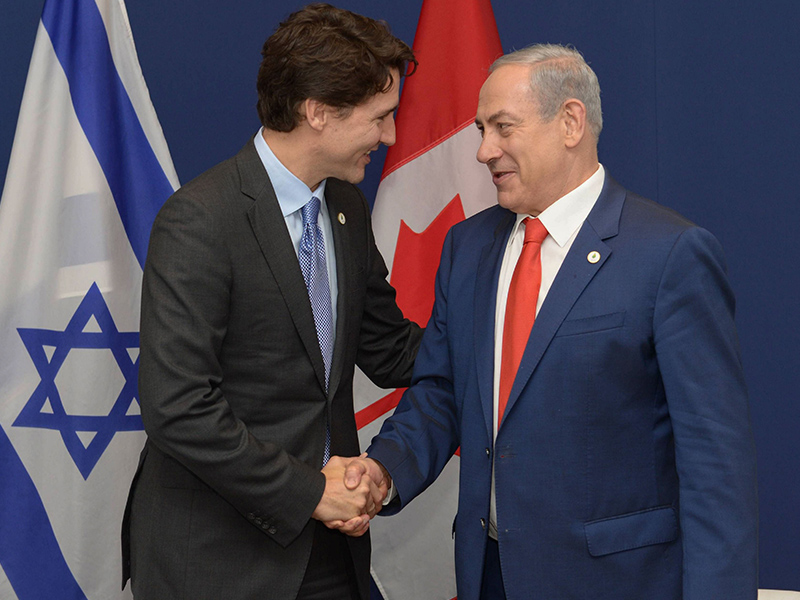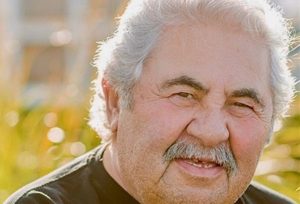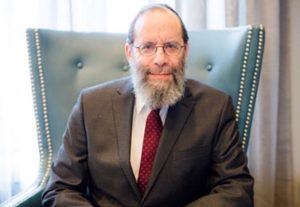During last fall’s election campaign, there was plenty of debate about whether a Liberal victory would mark a change in the country’s relationship with Israel. Would it shift to being more even-handed between Israelis and Palestinians and adopt a role as “honest broker,” or would it remain as staunchly pro-Israel as it had been under the Harper Conservatives?
A Canadian Press report on a briefing memo prepared by the Privy Council Office for Prime Minister Justin Trudeau has been interpreted by some as signalling a shift. CP, which obtained the memo in an access to information request, said there had been “persistent reports of indirect talks between Israel and Hamas aimed at negotiating an extended ceasefire.”
An analyst quoted in the report said the memo indicated the Trudeau government was coming to terms with a “geopolitically significant” development in the Palestinian-Israeli conflict and that “it’s a pretty sharp contrast with the position of the Harper government.”
But not everyone sees it that way.
Israel’s embassy in Ottawa looked into the issue, spokesperson Eitan Weiss told The CJN. “We received reassurances from the Canadian foreign ministry that Canadian policy has not changed on this issue.”
Shimon Fogel, CEO of the Centre for Israel and Jewish Affairs (CIJA), said his organization hasn’t seen the memo, but called the issue “largely a non-story.”
“Any observer will tell you that an overwhelming majority of Israelis would welcome long-term quiet with Hamas as per Israel’s offer in 2014 of reconstruction in exchange for demilitarization of Gaza. That quiet, however, depends on Hamas ending its theft and misuse of aid intended for Palestinians and its ongoing terror campaign against Israelis. Indeed, were Hamas to accept the Quartet’s [the United States, United Nations, European Union and Russia] basic conditions – that it unequivocally renounce violence, recognize Israel’s right to exist, and abide by signed Israeli-Palestinian agreements – we would be among the first to welcome this development.”
Fogel rejected suggestions there’s been a shift in government policy. “Although Trudeau’s and Harper’s tones and styles are dramatically different, Mr. Trudeau has been unequivocal… that support for Israel will remain a fixture of Canadian foreign policy… firmly rooted in a cross-party consensus and reflecting shared values, interests and opportunities. Mr. Trudeau has also been unequivocal in condemning Hamas as a terrorist organization and upholding Israel’s right to defend its people from attacks.”
“When CIJA met with Minister of Foreign Affairs Stéphane Dion, he emphasized that Canada’s substantive policy vis-à-vis the Middle East would not change, noting that the government would like to play, in their view, a more active role in contributing to regional peace and stability,” Fogel added.
Meanwhile, JSpace Canada, a left-wing Zionist group, ran a piece on its website by founding member Harry Schachter that said, “We may be seeing early signs of a shift back to a middle-of-the-road position on Israel-Palestine issues by the new Trudeau government, more in keeping with Canada’s historic role in the Middle East.”
Noting the previous Tory government would have refused to deal with Hamas, Schachter writes that “whether Israel should negotiate with Hamas has long been a serious question. The CP report could mean that talks between Israel and Hamas would be looked on favourably by the new government in Ottawa.”
He suggested ISIS’ attempts to make inroads in Gaza would put Hamas in a more positive light for western nations. Even though some in Israel would see an ISIS takeover of the area as giving Israel a freer hand there, “a more secure outcome for Israel – and for the people of Gaza – would surely be talks with Hamas. If the new government of Canada can play in role in facilitating such a process, as part of a realignment of its position in the Middle East, so much the better,” he writes.







